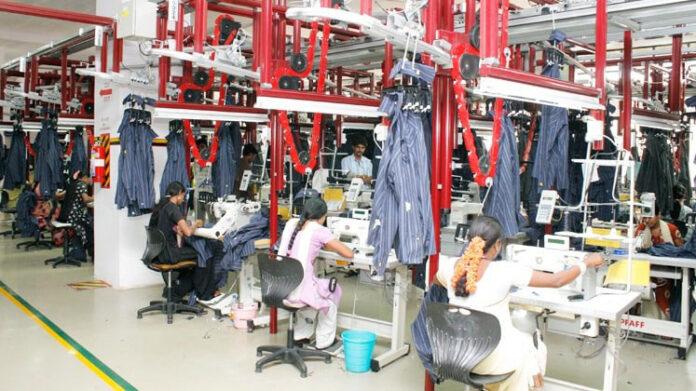Tiruppur is an apparel manufacturing hub in India. The reason for the consistent growth is due to strong infrastructure, local entrepreneurs’ skills, local business leaders, and supportive State Government policies. But in the current fiscal year, Tiruppur exporters are facing a shortage of demands because of the economic slowdown in the US and war-effect in Europe.
As per Tirupur Exporters’ Association (TEA), Tirupur garment exports increased Rs. 33,525 crores in 2021-2022 (US $ 4.51 billion) from around 25000 crores in 2020-21. India’s export of knitwear-based apparel products, Tirupur alone has more than 50 percent share. The hub also has a good share in the Indian domestic market as the data available with trade bodies shows that it had a turnover of Rs. 50,000 crores (both exports and domestic) in 2019-20.
Shine Jacob, the respected and outspoken economic journalist writes in the Business Standard on 30 September 2022, “Despite higher prices, there was an increase in demand during the first five months. Now, we are seeing a higher decline in orders for the coming months. We expect a 30-40 percent fall in total exports for the year due to the ongoing global scenario,” said Raja M Shanmugam, president of the Tirupur Exporters’ Association (TEA).
“Raw material prices have increased and the war between Russia and Ukraine has seriously affected demand from Europe. And, the US economic slowdown is also causing trouble for advance orders,” said M P Muthurathinam, president, Tiruppur Exporters and Manufacturer Association (TEAMA).
“Total purchasing power is less in the Indian market. In addition, hitting our profits, yarn prices also increased from around Rs 220 per kg in 2020 to around Rs 400 per kg now,” Muthuraman added.
“Due to a dip in demand, the textile industry is not taking yarn and our stocks have increased. People are not ready to take the stock. Similarly, higher cotton prices are also a cause for concern,” K Venkatachalam, chief advisor, Tamil Nadu Spinning Mills Association (Tasma), said.
“The main problem is that the government is not giving priority to micro small and medium enterprises (MSMEs). All the schemes are being lined up for big corporates. Unless our issues are addressed, we will be heading for bigger trouble with global demand down,” Muthuraman said.










